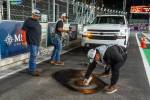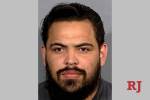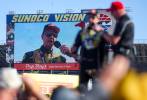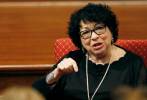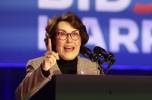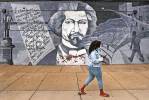Inside some of the numbers of election 2016
No matter what else happened in the closing days of Election 2016, you can’t deny the vaunted Harry Reid machine was firing on all cylinders.
Then again, knowing Reid, the gears and levels are solar-powered by now.
In a year that Donald Trump wrapped up states that traditionally go Democratic, Nevada remained deep blue.
Not only did Hillary Clinton win the state, but Democratic former attorney general Catherine Cortez Masto defeated Republican Rep. Joe Heck for U.S. Senate; newcomer and virtual unknown Jacky Rosen won over famous name Danny Tarkanian in the 3rd Congressional District; Ruben Kihuen put an end to the one-term career of Rep. Cresent Hardy in the 4th Congressional District; the red wave of 2014 was reversed in the state Assembly; and Democrats took the state Senate, too.
And more than one person on that list owes his or her victory to the voter turnout machine created by Nevada’s senior senator in the wake of his near-death experience that was the 1998 election.
Clinton won just two of Nevada’s 17 counties, Clark and Washoe, outpolling Trump by more than 26,000 votes statewide, and 80,000 here in Southern Nevada.
Heck beat Cortez Masto in every single county except Clark, where she edged out her victory with numbers nearly identical to Clinton’s. The result must have pleased Reid to no end, especially since this race became a proxy battle between him and his longtime rivals, the oil billionaire Koch Brothers.
In Congressional District 3, Rosen defeated Tarkanian by fewer than 4,000 votes, the closest federal-race margin on the ballot. The election marks Tarkanian’s fifth straight loss in attempts at national and state offices.
And in Congressional District 4, where Democrats outnumber Republicans by nearly 40,000 active registered voters, Kihuen defeated Hardy by more than 10,000 votes. It was a much more comfortable margin than in the red tide of 2014, when Hardy defeated former Rep. Steven Horsford by just more than 3,600 votes.
And speaking of the red tide that swept Republicans into control of both houses of the Legislature (as well as all state constitutional offices) for the first time in decades, it’s definitely rolled back out to sea.
Democrats are back in charge of the state Assembly (where re-elected Assemblyman Jason Frierson will preside as the first black speaker in state history) and they’ll take back control of the state Senate by just one seat, while newly re-elected Sen. Aaron Ford will preside as majority leader.
Individual factors played roles in each person’s victory, of course. Candidates put in incredible amounts of work, walking their districts, knocking on doors, making phone calls, and raising money. But each race also benefited from the machine that identified Democratic voters, reminded them to vote, got them to the polls early and built up a bank of votes that the state GOP and the Trump campaign were simply unable to overcome.
In fact, the question now becomes, can Democrats replicate their success in 2018, an off-year election with the governor’s race the center of attention, now that Reid and his top lieutenants won’t be running that machine anymore?
One last bit of interesting trivia: Nevada’s unique ballot option None of These Candidates had a terrific night in the race for president. Since 2000, None has never broken 1 percent of the vote, regardless of who was running.
But this year, a year in which the two major political parties nominated the two candidates with the highest unfavorable ratings in the country? None of These Candidates posted 2.57 percent, and earned more actual votes in a single year than in the presidential contests of 2000, 2004, 2008 and 2012 combined.
If you see None, offer your congratulations!
Steve Sebelius is a Review-Journal political columnist. Follow him on Twitter (@SteveSebelius) or reach him at 702-387-5276 or SSebelius@reviewjournal.com.


















